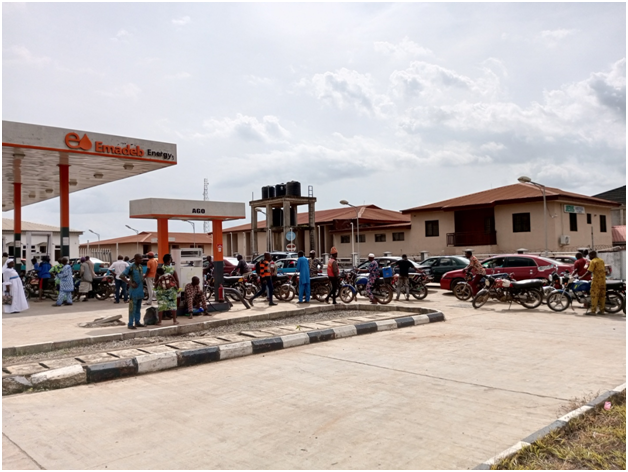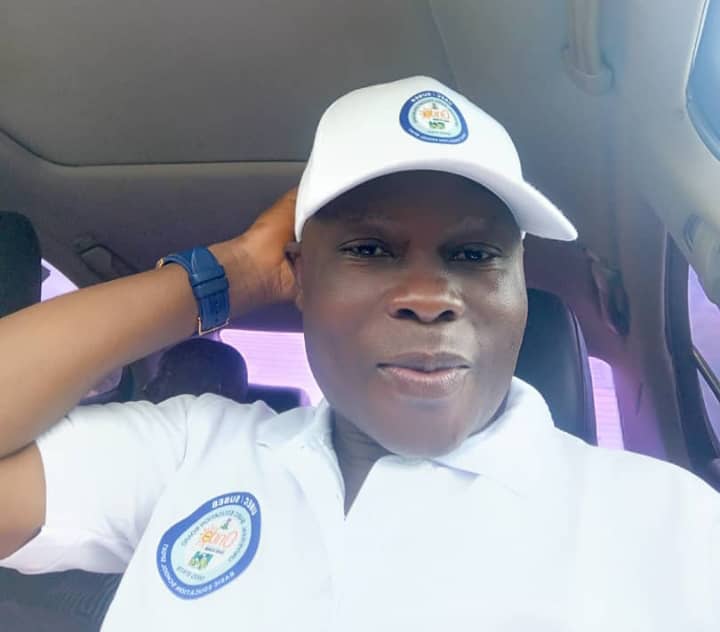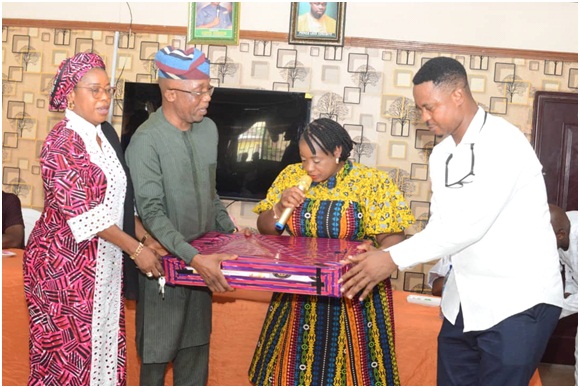Nigeria @ 62 and the journey so far
By Babatunde Ayedoju
October 1, 1960, is an unforgettable day in the history of the most populous black nation in the world. That was the day Nigeria gained independence from Britain after 46 years of colonial rule. That day was a Saturday, at the Teslim Balogun Stadium, Lagos. The colourful event was graced by Princess Alexandra of Kent who presented the Freedom Charter to Jaja Nwachukwu, Nigeria’s first indigenous speaker, on behalf of Queen Elizabeth II.
Nigerians trooped out to witness the epoch-making event. Highlights of the event included prayers, and at exactly 12 am the British flag, also known as Union Jack, was lowered, while the green-white-green flag of Nigeria, designed by a Nigerian student, Taiwo Akinkunmi, was hoisted in its place.
That was a dream come through for Nigeria. It was victory for our heroes past, such as Chief Obafemi Awolowo, Dr Nnamdi Azikiwe, Sir Ahmadu Bello and many others who fought gallantly to bring such a day to pass.
It is on record that the Nigerian mass media contributed immensely to the attainment of Nigeria’s independence, as the weapon for the fight for our sovereignty was the journalist’s newspaper and not the soldier’s gun. Prominent among such newspapers were the West African Pilot by Dr Nnamdi Azikiwe, Lagos Daily News by Herbert Macaulay and many others.
The first major challenge the new independent nation faced was the census crisis of 1962/1963. The Federal Government conducted a nationwide population census in 1962 but the result was rejected in some quarters. The Government conducted another one in 1963 but the result was also rejected in some parts of the country. However, the Supreme Court upheld the result of 1963 census.
In the Western Region, the ruling Action Group split into two factions – one led by Chief Obafemi Awolowo and the other led by Chief Samuel Ladoke Akintola. After the expulsion of Chief Akintola from AG, he formed a new party known as Nigerian National Democratic Party (NNDP). The NNDP later merged with the ruling party (NPC) to form Nigerian National Alliance (NNA). Chief Obafemi Awolowo’s faction of Action Group merged with NENC to form United Progressive Grand Alliance (UPGA). NNA was headed by Sir Ahmadu Bello, while Dr Michael Okpara was the leader of UPGA. Meanwhile, Chief Awolowo had been jailed for treasonable felony.
In the midst of this crisis, an election was held in 1965 and the result of the election in the Western region led to violence that claimed many lives and property.
The crisis lasted till January 1966 when a group of young Nigerian army officers staged a bloody coup which claimed the lives of Sir Abubakar Tafawa-Balewa, the Prime Minister; Sir Ahmadu Bello, the Premier of Northern region and political head of the region; and Chief Samuel Ladoke Akintola, the Premier of Western region at that time. The coup, led by Major Chukwuma Kaduna Nzeogwu, also claimed the lives of many army officers.
Between 1966 and 1979 when Nigeria returned to civil rule, she witnessed four military coups, three of which were bloody, and a 30-month Civil War that claimed over a million lives and destroyed property worth millions of naira. To heal the wounds of the Civil War, the Gowon administration, which was earlier renown for the slogan ‘Go On With One Nigeria’, set up a policy that was known as ‘The 3 Rs.’ The policy was aimed at Reconciliation, Reconstruction and Rehabilitation.
During that period, precisely in 1973, the Gowon regime also created the National Youth Service Corps (NYSC). The idea behind NYSC, at inception, was that graduates should spend one year serving their fatherland outside their states of origin immediately after graduating from the university or polytechnic. The programme was meant to be compulsory for all graduates, but over time, it has been restricted to only graduates who are below age 30. Graduates who are above that age have the option of obtaining Exemption Letter instead of going for the service.
After taking a four-year break, Nigeria returned to military rule which lasted for another 16 years. During this period, Nigeria conducted the much celebrated June 12 1993 election which was annulled. The Olusegun Obasanjo administration, which took over from General Murtala Ramat Muhammed in 1976, conducted an election in 1979 that ushered in Nigeria’s first executive president – Alhaji Shehu Aliyu Shagari. Nigeria’s first president, Dr Nnamdi Azikiwe, was a ceremonial president during the first republic when Nigeria practised cabinet system of government. Shagari was the first president to emerge through popular votes, making him the first executive president.
Unfortunately, his regime was truncated by the December 31, 1983 coup that brought in Major General Muhammadu Buhari. Buhari’s less than two year rule ushered in General Ibrahim Badamasi Babangida.
Babangida stepped aside, supposedly because of the crisis that followed his administration’s historic decision to annull the June 12, 1993 presidential election. The election had been between Chief MKO Abiola of Social Democratic Party (SDP) and Alhaji Bashir Tofa of National Republican Convention (NRC). Abiola was believed by many Nigerians to be leading what was for many years regarded as Nigeria’s freest and fairest presidential election, before the military government annulled it.
By 1999, Nigeria was obviously ready to fully return to civil rule and elections were conducted. Chief Olusegun Obasanjo emerged winner of the presidential election that year. After ruling for eight years, Obasanjo made history as the first civilian president to hand over to another civilian president. Dr Goodluck Jonathan also made history in 2015 as Nigeria’s first civilian president to lose an election while in office and reliquish power to another civilian president.
Stepping aside, IBB, as Babangida is also known, handed over to an interim national government that was led by Chief Ernest Shonekan. The ING was, however, short-lived, as the military struck again, bringing the civilian government to a halt. General Sani Abacha ruled for the next five years, during which Abiola was imprisoned. Obasanjo and several other ex-military officers were also jailed for allegedly plotting coups against the Abacha government. That was even as that regime also earned a very bad human rights record. Part of what contributed to the bad human rights record was the summary execution of Ken Saro Wiwa and about eight other Ogoni (River States) activists.
The sudden death of Abacha brought General Abdulsalam Abubakar into power. Between June 8, 1999 and May 1999, Abubakar ruled and prepared the ground for the ushering in of another civilian administration. During this short period, Abiola, the supposed winner of the annulled June 12 election, died mysteriously in prison; Chief Olusegun Obasanjo was released from prison; he contested at the presidential poll in January 1999 and was declared winner. He was thereafter sworn in on May 29, that same year. May 29, thus, became Nigeria’s Democracy Day for many years, until the current President, Muhammadu Buhari, changed it to June 12. Earlier, June 12 was for commemorating the presidential election that was never allowed to produce a president in 1993, but the Buhari government adopted it as Nigeria’s Democracy Day, while May 29 will remain the day for swearing in a new president and governor, for some states.
Between 1999 and now, Nigeria has had four civilian presidents. That, so far, is Nigeria’s longest civil rule and the highest number of civilian presidents on a stretch. During this period, a lot has happened.
Educationally, Nigeria now boasts of 170 universities. Out of this number, 79 are private, 43 are federal and 48 are owned by various state governments. The country equally boasts of 159 polytechnics and 152 colleges of education. However, our universities have been on strike from time to time, with polytechnics not being spared either.
According to data analysed by an online medium and updated in 2020, Nigerian lecturers went on strike 15 times between 1999 and 2020, spanning 50 months. This represents 20 percent of the number of years in view. Another research reported that in 23 years, students lost four years to 16 ASUU strikes.
According to SBM Intelligence, the number of people killed in Nigeria surged year-on-year by 47 percent to 10,366 in 2021. Armed Conflict Location and Event Data Project (ACLEDP) reported that 1,200 people were kidnapped as at first half of 2021, compared to 45 in 2010.
Likewise, the UN says that 900 students have been abducted from schools since December 2020, even as SBM Intelligence says that as of June 30, 2022, N10 billion ($19.96 million) was demanded as ransome for kidnap victims by abductors.
Assessing the political history of Nigeria over the years, Professor Simon Ehiabhi from the Department of History and International Relations, Adekunle Ajasin University, Akungba-Akoko, examined Nigeria’s progress from the political, economic and social perspectives.
Politically, the university don believes that Nigeria has done not badly, despite the long period of bad governance and military interruptions. In his opinion, this is evident in the way Nigeria has survived many political crises in the past.
From the economic perspective, Ehiabhi scored Nigeria very low, describing Nigeria as a dependent nation. He added that any country that wants to grow must be able to produce what it consumes.
Lamenting further, Ehiabhi said, “For us in Nigeria, we are rather importing than exporting. Our leaders have not been patriotic enough to revive our economy. We can see how this is affecting our currency. If we are exporting, we will be having more dollars in our economy but the current high rate of importation contributes massively to the persistent drop in the value of our currency.”
Speaking from a social perspective, Ehiabhi added that the level of integration of Nigerians has increased as a result of intermarriage. He said, “It’s this connection that has been keeping us together more than our leaders. Unfortunately, this is being threatened by poverty, insecurity and violence.”
The seasoned social scientist also decried the poor state of Education in Nigeria, stating that by now, education should have been made free, like it is in some countries such as Denmark and Germany.
As a way forward, Ehiabhi recommended restructuring expressed in form of true federalism for Nigeria in the years to come. His words: “My concept of restructuring is not a balkanised Nigeria but to allow the federal structure really work. Let us still have more powers at the centre. That is what a federal structure is, but we will have state police, state judiciary, more control of VAT and the economy at the state level. We will only have to pay percentages to the Federal Government. That way, states will be able to grow and the quality of life of citizens will improve.”

Dr. Adekunle Akinola from the Department of Political Science, Adekunle Ajasin University, Akungba-Akoko believes that Nigeria is still on track, despite the ups and downs that she has faced in the past.
While stating that a lot of Nigerians believe that the country should have been more advanced than it is now, after 62 years of independence, Dr Akinola decried the lack of patriotism among many Nigerians.
The political science scholar cited bad governance, insecurity and many other challenges that have bedeviled the country over the years. He also bemoaned the high rate of crime among the youths.
In the opinion of Dr Akinola, another challenge that Nigeria has faced in recent times is the mass exodus of able-bodied youths and middle-aged Nigerians to other countries.

“A lot of Nigerians, having been trained here, end up going to use the knowledge and skills they have acquired here to develop other countries, because they believe that they will earn more over there. People talk about seeking greener pastures abroad but forget that some people laboured to make the grass over there green. If everybody is leaving Nigeria for greener pastures elsewhere, who will water our own grass to make it green? It is the collective responsibility of all of us,” Dr Akinola added.
He, therefore, sued for good leadership and patriotism, instead of an uncontrolled drive for instant gratification as a way forward.










